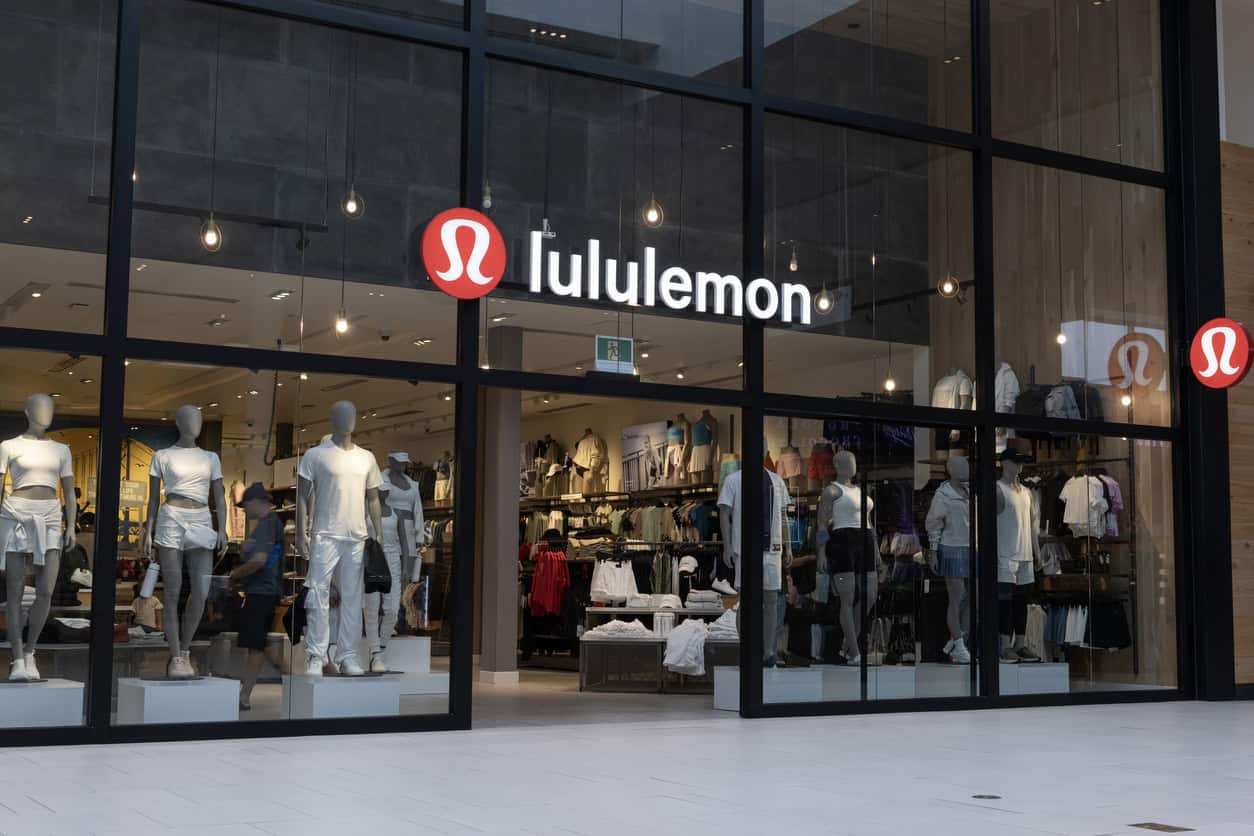
iStock.com/jetcityimage
Are Emerging Upstarts Challenging Lululemon’s Growth?
An analyst from Jefferies lowered his price targets on Lululemon due in large part to threats from athleisure upstarts Alo Yoga and Vuori. The analyst Randy Konik believes Lululemon is mimicking past mistakes by Under Armour and Coach.
In a note attained by RetailWire, Konik said Under Armour’s sales slowdown from consistent double-digit quarterly growth to single-digit gains or declines starting around 2017 can be traced to fashion shifting from performance-athletic to fashion-athletic style, Adidas gaining share, and management taking its focus off core apparel offerings due to the brand’s entrance into footwear and MapMyFitness acquisition.
“[Lululemon] is exhibiting similar issues,” wrote Konik. “1) Data shows [Lululemon] losing incremental share to Alo/Vuori, 2) fashion in bottoms is shifting to wide-leg (not a core for [Lululemon]), and 3) entrance into Mirror and footwear are mistakes in strategic direction.” The result, he added, is that Lululemon’s total sales growth average of over 30% for the last 12 quarters “slowed to near 10% today.”
In a separate note, the analyst wrote that while Coach, known for its handbags, was able to nearly double its revenue from 2007 to 2013, Michael Kors was able to eclipse Coach’s sales volume by 2015 due to product innovation, market positioning, differentiated celebrity endorsements, and aggressive retail expansion.
Alo Yoga and Vuori could have a “Kors Effect” on Lululemon, according to Konik, as both brands are generating healthy momentum based on expanding website visits and aggressive store openings. Both brands operate 85% to 90% of their stores within a half mile of a Lululemon location. Konik said, “While Alo and Vuori are still in the early stages of their growth trajectories, we believe both of these brands could serve as LULU’s key competitors over the next several years.”
Larger competitors, particularly Nike and Adidas, have long been seen as the primary threats to Lululemon’s growth.
Konik said Lululemon is also facing slower growth in the North American sportswear market.
Another skeptic of Lululemon’s growth is Chip Wilson, the chain’s founder who has become its loudest critic since stepping down from the retailer’s board in 2015. In an interview with Forbes in January of this year, Wilson said he believes diversity pushes are working against Lululemon’s ability to differentiate in the marketplace.
“They’re trying to become like the Gap, everything to everybody,” said Wilson. “And I think the definition of a brand is that you’re not everything to everybody.”
Jefferies’ note arrived as Lululemon reported that its first-quarter fiscal 2024 results topped expectations while delivering weak second-quarter guidance. Sales in the Americas in the first quarter slowed to a gain of 3%, versus a 17% jump in the year-ago period.
On its first-quarter analyst call, Lululemon’s CEO Calvin McDonald said Lululemon saw a “slower start” to the year due to “some ongoing choppiness in the consumer environment,” but also internal factors, including shortages in colored leggings, small sizes, and two-toned tote bags. Sales are still expected to grow by 11% to 12% for the full year. McDonald said, “With the lead times, we expect to be in a more optimal inventory position in the second half of 2024.”
Discussion Questions
How should Lululemon be addressing the threats presented by Alo Yoga, Vuori, and other smaller competitors?
What unique challenges do emerging competitors present versus larger competitors like Nike?
Do you see any signals that Lululemon’s growth will slow this year?
